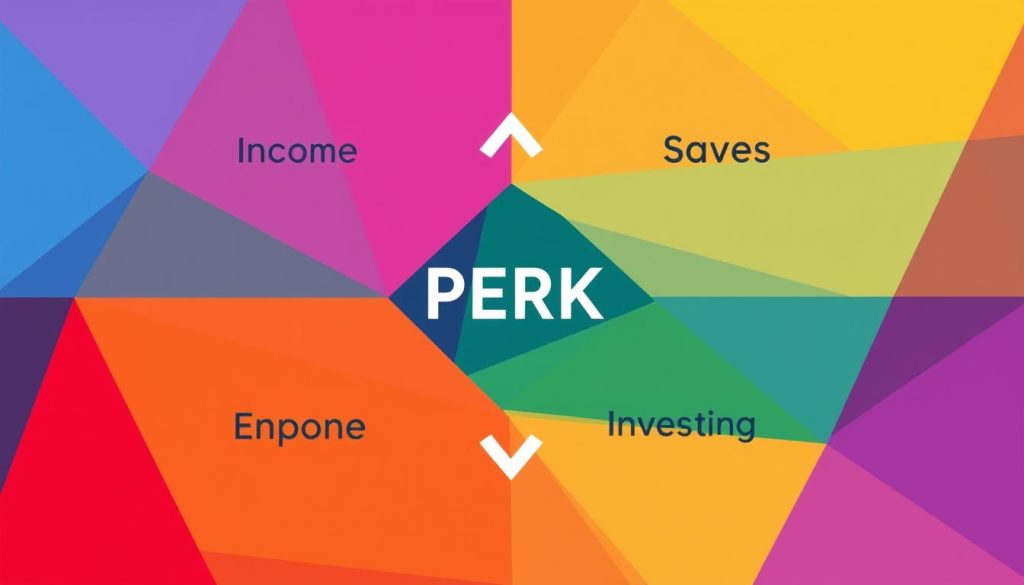Are you looking to make the most of your money? Working with a certified financial planner (CFP) can be a game-changer. They offer expert advice on everything from saving for retirement to smart investments. This guide will show you the key strategies and hacks a CFP can teach you to boost your financial health.
Key Takeaways
- Certified financial planners (CFPs) can help you optimize your retirement savings, investments, and tax planning.
- CFPs can assist in creating a comprehensive financial plan tailored to your unique goals and risk tolerance.
- Working with a CFP can help you identify tax-advantaged accounts and strategies to minimize your tax burden.
- CFPs can provide guidance on estate planning and ensure your assets are properly protected and transferred to your beneficiaries.
- Regularly reviewing your financial plan with a CFP can help you stay on track and make adjustments as your life and goals evolve.
The Importance of Certified Financial Planners
Dealing with personal finance can be tough. That’s why a Certified Financial Planner (CFP) is key. CFPs have deep training and pass tough exams to offer full financial planning. They are bound by a fiduciary duty, meaning they always put their clients first.
Checking Credentials and Specializations
When picking a CFP, check their credentials and what they specialize in. The CFP® certification shows they know a lot about investing, taxes, retirement, and estate planning. They might also focus on specific areas like retirement or taxes. Make sure your CFP fits your financial needs and goals.
| Credential/Specialization | Importance |
|---|---|
| CFP® Certification | Shows they’ve got a lot of training in financial planning |
| Retirement Planning | Helps you plan for a secure and comfortable retirement |
| Tax Management | Ensures you maximize tax efficiency and minimize your tax burden |
| Estate Planning | Helps you protect your assets and ensure a smooth transfer of wealth |
Working with a CFP who has the right skills and knowledge means your money is in good hands.
Retirement Planning with a Certified Financial Planner
Planning for retirement is key to financial security. A Certified Financial Planner (CFP) can be very helpful. They help set and reach your retirement goals, like traveling or hobbies. They also check your retirement funds, like Social Security and investments, to make sure they last.
Understanding Your Retirement Goals and Resources
A CFP can tailor your retirement plan to fit your needs. They help you figure out what you want to do in retirement. They also look at your retirement funds to make sure you get the most out of them.
| Retirement Planning Considerations | Key Benefits of Working with a CFP |
|---|---|
|
|
Working with a Certified Financial Planner gives you peace of mind. They make sure your retirement plan is set up to help you reach your goals.
“A Certified Financial Planner can help you navigate the complex landscape of retirement planning, ensuring your money lasts as long as you do.”
Budgeting and Expense Management
Budgeting can feel like a chore, but a Certified Financial Planner (CFP) can make it easier. They teach you simple ways to save money and manage your spending. The PERK method – Postpone, Eliminate, Reduce, and Keep – is a great start.
The PERK method helps you spend less without a strict budget. Your CFP can show you how to cancel unused subscriptions. They also help you avoid buying things on impulse with a “buying buffer zone.”
Practical Hacks to Save Money Without Budgeting
With your CFP’s help, you can reach your financial goals without a tight budget. They find ways that fit your life and goals. This makes saving and managing expenses easy and natural.
- Use the PERK method to find where you can spend less
- Cancel subscriptions you don’t use
- Use a “buying buffer zone” to stop impulse buys
| Service | Typical Fees |
|---|---|
| Hourly financial planning | $120 to $300 per hour |
| Per-project financial planning | $275 to $4,500 per project |
| College planning packages | $275 to $1,500 per package |
| Comprehensive financial planning | $2,000 to $4,500 per plan |
Working with a CFP lets you get a plan that’s just right for you. They help you find ways to manage your money that work for your life. This way, you can reach your financial goals without feeling trapped by a strict budget.
Investing with a Certified Financial Planner
Investing can seem scary, but a Certified Financial Planner (CFP) can help. They guide you in creating a diverse investment portfolio. CFPs figure out the right asset allocation for you, based on your risk tolerance, time frame, and financial goals.
CFPs know a lot about different investment vehicles like stocks and bonds. They help you make a plan to get good returns while keeping risk low. With their help, you can make smart investment choices and reach your financial goals.
Benefits of Investing with a CFP
- Personalized investment recommendations based on your unique financial situation and goals
- Assistance in developing a comprehensive portfolio management strategy
- Ongoing monitoring and adjustments to your investment portfolio as your needs or the market conditions change
- Access to a wide range of investment products and services tailored to your risk profile
- Guidance on tax-efficient investment strategies to maximize your returns
| CFP Credential | Cost and Requirements |
|---|---|
| Certified Financial Planner (CFP) |
|
Working with a Certified Financial Planner makes investing easier. They help you create a portfolio that fits your financial goals and risk tolerance. Their expert advice is key to reaching your long-term financial dreams.
Estate Planning and Legacy Considerations
Estate planning is key to managing your finances well. A Certified Financial Planner (CFP) can help you through this process. They ensure your assets go where you want, reduce taxes, and might even help your loved ones or charities.
CFPs handle the legal and financial sides of estate planning. They help with wills, trusts, and working with lawyers and tax experts. They make sure your estate planning, legacy planning, wealth transfer, and charitable giving goals are met.
With a CFP, you can rest easy knowing your financial future is secure. They guide you through estate planning, making sure your wishes are followed. They also help with giving to charity and transferring wealth wisely.
| Key Considerations for Estate Planning | Benefits of Working with a CFP |
|---|---|
|
|
Working with a CFP lets you create a tailored estate planning strategy. It fits your financial situation and goals. This teamwork gives you peace of mind and confidence in your financial legacy.
“Estate planning is not only for the ultra-wealthy. A significant portion of the population can benefit from setting up a trust at some point.”
Choosing the Right Certified Financial Planner
When picking a certified financial planner, it’s key to do your homework. Look for a fiduciary planner, who must act in your best interest. Also, know their fee structure, like fee-only, fee-based, or commission-based, as it affects their advice.
Check the planner’s expertise, education, and experience. This helps you see if they match your financial goals. A good planner will help you reach your financial dreams.
Credentials and Specializations
Choose a planner with the Certified Financial Planner (CFP) badge. This means they’ve met strict education and work requirements. CFPs are great for complex financial situations, like big debts and estate planning.
| Advisor Type | Compensation Structure | Ideal for |
|---|---|---|
| Fee-Only Advisor | Percentage of assets, flat fee, or hourly rate | Clients with $500,000+ in investable assets |
| Fee-Based Advisor | Percentage of assets managed (0.25% to 1.5% or more) | Clients with diverse financial needs |
| Commission-Based Advisor | Commissions from selling investments and insurance | Clients with simpler financial needs |
| Robo-Advisor | Flat annual/monthly rate or percentage of assets | Tech-savvy younger individuals |
Knowing about different compensation types and specializations helps you choose wisely. This way, you find the perfect planner for your financial goals.
“Choosing the right financial planner is crucial for your financial well-being. Take the time to research their credentials, experience, and compensation structure to ensure they are the best fit for your needs.”
Conclusion
Working with a Certified Financial Planner can change your financial game. CFPs know how to guide you at every step. They help with planning for retirement, managing investments, and more.
They help you make the most of your money and reduce risks. With their help, you can create a plan to reach your financial goals. This includes both short-term and long-term plans.
A CFP is great for anyone looking to plan their finances or improve their current plans. The CFP certification is well-known and respected. It shows a commitment to ethical standards, building strong client relationships.
Having a CFP opens up many career paths in the financial world. CFPs must keep learning to stay current with trends. Working with a CFP means you get access to a lot of financial planning knowledge. This can lead to more financial security and freedom.
FAQ
What is a Certified Financial Planner (CFP)?
Why should I work with a Certified Financial Planner?
How do I choose the right Certified Financial Planner?
How can a Certified Financial Planner help with retirement planning?
What budgeting hacks can a Certified Financial Planner provide?
How can a Certified Financial Planner help with investing?
What role do Certified Financial Planners play in estate planning?
Source Links
- Certified Financial Planner Hacks: How to Get the Most Out of Your Money
- 12 Financial Planners Share Their Best Tips For Making More Money
- Hiring a Financial Advisor? Look for the CFP Label
- Certified Financial Planner™ (CFP®): What It Is and How to Become One
- CFP Strategies for Lasting Retirement Income
- How to Hire a Retirement Advisor
- What Is a Financial Planner? What They Do and How to Find One
- How to Choose a Financial Advisor – NerdWallet
- CFP: Certified Financial Planner Definition, How To Become One – NerdWallet
- Financial Planners
- Financial Advisor vs. Financial Planner | Bankrate
- Does Estate Planning Include Financial Planning, and Should Your Estate Planning Attorney Also Be a Financial Planner?
- Estate Planning: Protect Your Legacy & Avoid These Mistakes
- Why Estate Planning and Financial Planning Should Go Hand-in-Hand | Team Hewins
- How To Choose A Financial Advisor
- How to choose a financial advisor | Vanguard
- Financial Planner vs. Financial Advisor: What’s the Difference?
- 5 Reasons to become a Certified Financial Planner – Success CE
- Certified Financial Planner vs Fiduciary: Understanding the Key Differences – Diversified LLC



